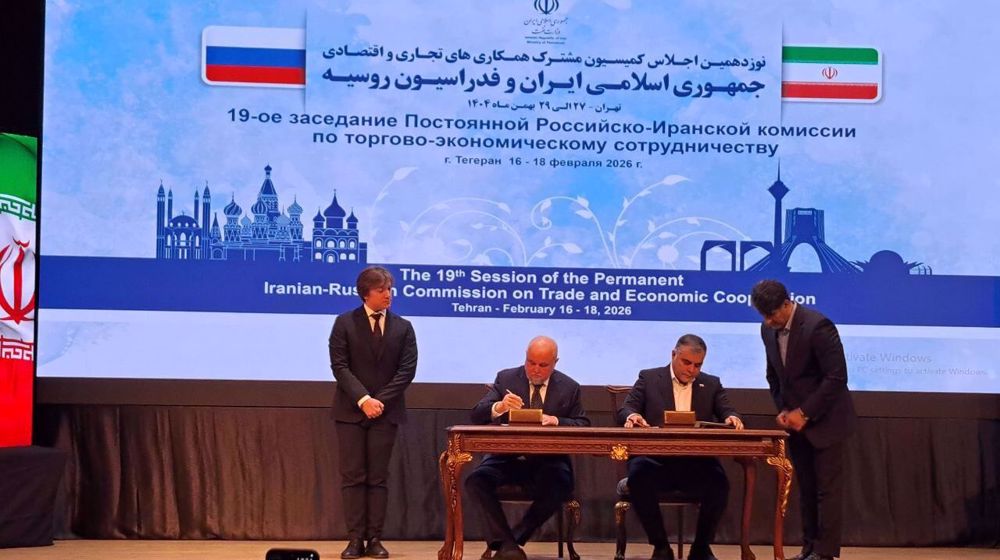EU to make direct oil payments to Iran to bypass US sanctions
A plan by the European Union to make direct oil payments to Iran after the US re-imposes sanctions against the country is seen to risk the start of a trade war between Europe and the United States.
The plan – which was unveiled on Friday – envisages Euro payments to the Central Bank of Iran (CBI) for oil purchased by EU member states. It would be part of a package of measures adopted by the EU to save the 2015 nuclear agreement with Iran after US President Donald Trump said he would take America out of it.
However, analysts quoted by the Financial Times echoed a concern among EU leaders including the French President Emanuel Macron that the move could spark a new conflict between Brussels and Washington.
The European Commission – that approved the plan – announced in a statement that it was encouraging the EU’s 28 members to “explore the possibility of one-off bank transfers to the Central Bank of Iran”.
This could enable Tehran to receive oil-related revenues, particularly if US sanctions targeted EU entities active in oil transactions with Iran, the Commission added in its statement as quoted by the Financial Times.
The daily further quoted oil traders as saying that direct payments to Iran’s central bank could potentially be effective for smaller European refiners that do not have a large international presence or much exposure to the US.
However, they raised questions about how effective or applicable the EU plan might be for companies and traders with a more global footprint.
The biggest trading companies have operations in the US that are far more important to their businesses than their dealings with Iran, leading them to be ultra cautious in their approach, the Financial Times quoted company executives as saying. It added that traders would prioritize adherence with the US sanctions over anything the EU might offer.
EU adopts ‘blocking statute’
A key measure that EU also approved on Friday included the revival of a so-called “blocking statute” to allow companies to ignore US sanctions without fear of punishment in Europe.
The blocking statute — which will be based on a 1996 measure developed in response to US sanctions on Iran, Libya and Cuba — will forbid EU companies from complying with the extraterritorial effects of US sanctions, the commission further added in its statement.
It will stop EU courts enforcing US sanctions judgments and will also allow companies to recover “damages arising from such sanctions from the person causing them”.
The Financial Times quoted a person familiar with the Trump administration’s thinking said the EU’s measures were “grandstanding”.
The daily also quoted unnamed EU diplomats as saying that the Union knew its limited leverage and was already nervous about provoking Washington further at a time of fast-deteriorating transatlantic relations, including over threatened US steel and aluminum tariffs.
EU Commissioner in Iran
Meanwhile, EU Energy Commissioner Miguel Arias Canete arrived in Tehran on Saturday to present plans for continuing oil and gas purchases and protecting European companies in face of potential renewed US sanctions on Iran.
Canete said preserving the 2015 nuclear deal, despite the US decision to withdraw, was "fundamental for peace in the region".
"For sure there are clear difficulties with the sanctions," Canete – who was the first Western official to visit Iran since the US decision against the nuclear deal with Iran - said at a press conference in Tehran.
"We will have to ask for waivers, for carve outs for the companies that make investments," AFP quoted him as saying.
Hamas rebukes Trump's 'Board of Peace' meeting
Iran and Saudi FMs discuss outcomes of latest indirect Iran-US talks
VIDEO | Maritime anti-terrorism drill
UK's police arrest ex-prince Andrew over sex scandal linked to Epstein
Iran elected vice-chair of UN Special Committee on Charter
Iran envoy says decision made to exchange ambassadors with Egypt
Russia continues to develop relations with Iran: Kremlin
VIDEO | Friends of Palestine meet at UN in Vienna











 This makes it easy to access the Press TV website
This makes it easy to access the Press TV website